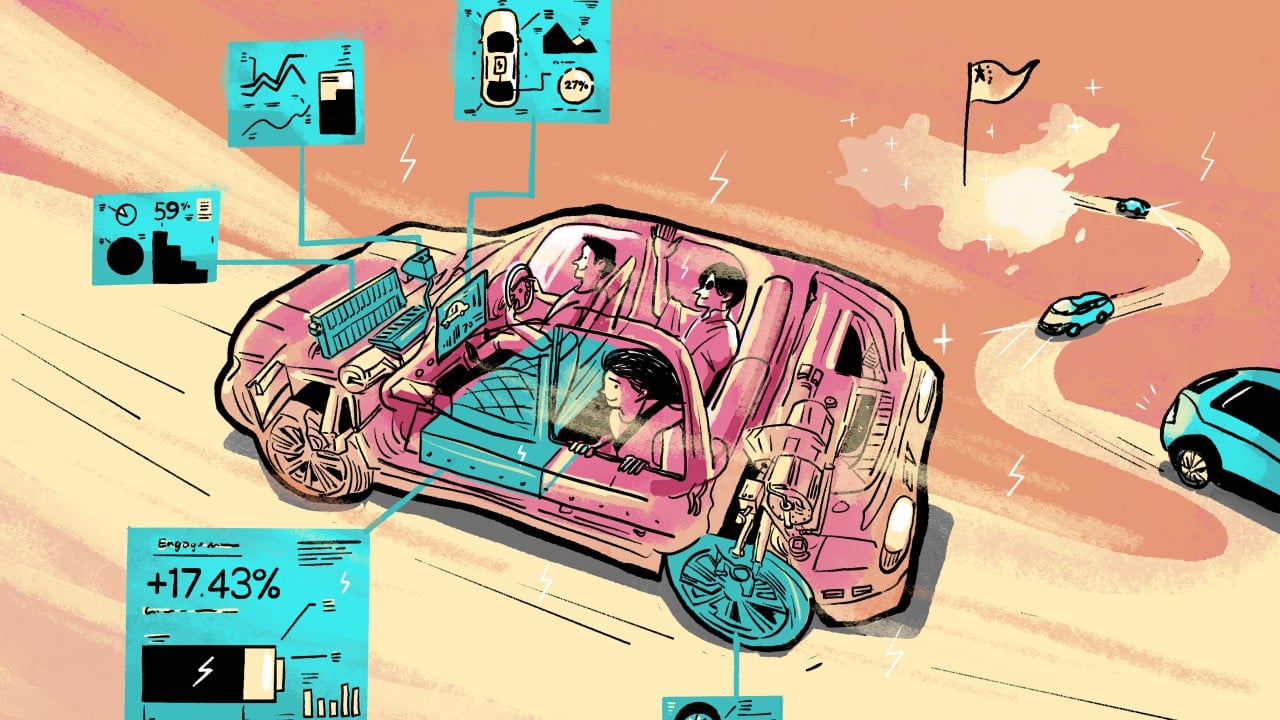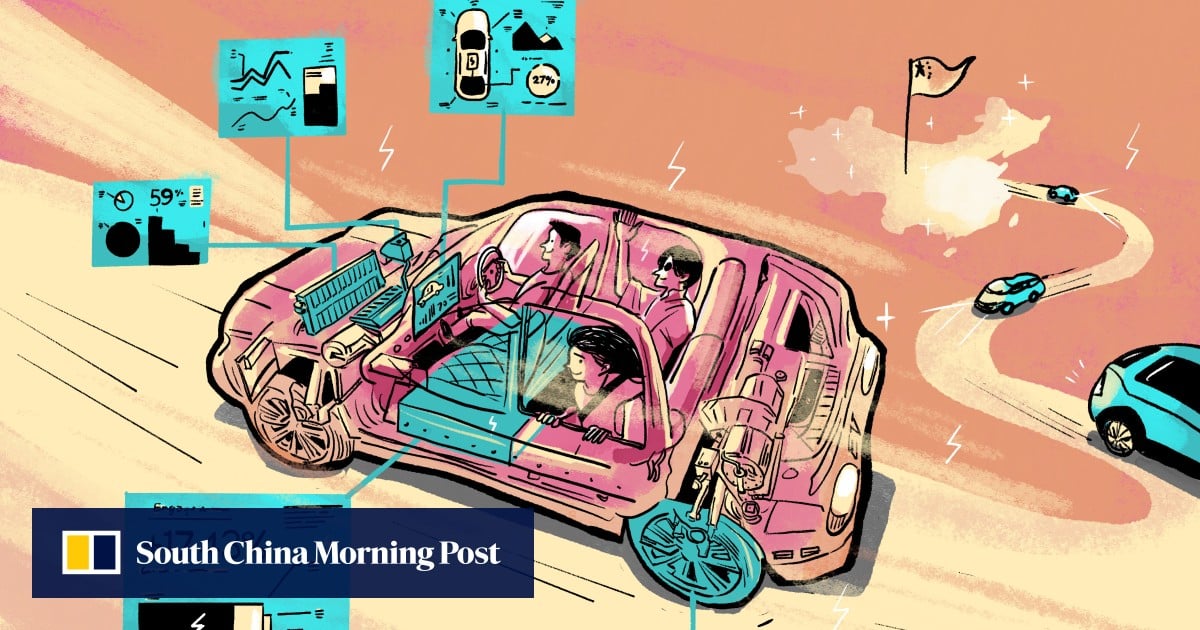
In the second instalment of a three-part series on China’s electric vehicles, Daniel Ren and Yujie Xue look at the key technologies of major Chinese EV assemblers battling for supremacy in the world’s largest and fastest-growing automotive market. Click here for the first part.
China’s electric vehicle (EV) makers are “an existential threat” to America’s car industry, according to Ford Motor CEO Jim Farley, whose company invented the world’s first automotive assembly line more than a century ago.
Chinese carmakers are offering slick digital features, artificial intelligence (AI) and other technology that is “unlike anything available in the US”, and they use a low-cost supply base to undercut competitors on price, Farley told Ford’s board member John Thornton, after a visit to China in May, according to a report in The Wall Street Journal.
Banking on heavy investment and generous government subsidies for consumers to switch to EVs, leading players like BYD, Li Auto, Nio and Xpeng, as well as newcomers telecommunications equipment giant Huawei Technologies and smartphone maker Xiaomi, have displayed their prowess, delighting drivers with state-of-the-art technology.
Chinese EVs have proven to be superior to global leader Tesla in terms of battery performance, digital features, interior build quality, and information and communication technology. Most models feature large multimedia screens, voice-activated control systems that not only connect to smartphones, but can also be used to operate home appliances.
Li Auto’s cars come with refrigerators and plush sofas, elevating passenger comfort and adding another dimension to the notion of luxury vehicles.
Still, Chinese EVs may have to play catch-up with Tesla in autonomous driving technology. The US carmaker’s Full Self-Driving (FSD) software, due to be deployed on the mainland next year, is the front-runner in the self-driving car race.

